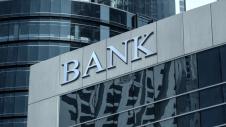It is looking increasingly like the bonds to be issued as part of Greece's Hercules Asset Protection Scheme will not carry a zero risk in a development that could potentially create large problems for the implementation of the state-backed program aimed at helping lenders offload bad debt.
In recent weeks, it appears that talks on the issue have frozen amidst objections from the European Central Bank (ECB ) over accepting senior debt to be issued by the program as having no risk, while Greece has rejected a proposal to issue special purpose state bonds to support the 12 billion euros of guarantees. Greece's Public Debt Management Agency (PDMA) is concerned that this would create a bad precedent and that these bond would probably be added to the country's public debt by Eurostat.
Other options being examined, sources told Business Daily, include attaching a risk weighting to the assets, with the ECB providing lenders with more time to manage capital losses arising from this scenario. This option is being supported by the fact that credit rating agency Fitch recently upgraded Greece, creating expectations that the country's debt may soon return to investment grade, possibly in the first quarter of 2021.
Bank officials estimate that the RWA will come in at close to 30 percent, creating a big problem for the implementation of the Hercules plan, however, some securitizations may be still pushed through. This may then involve the ECB instructing banks to up provisions amounting to 30 percent of the senior bond to be issued within the plan. Theoretically, if they use the total 12 billion euros of guarantees provided by the state, then the balance sheet risk will rise by 3.8 billion euros and a further 500 million euros of additional capital will be required.









